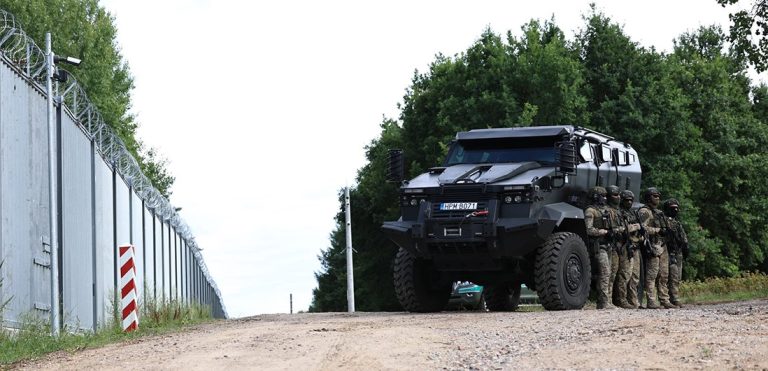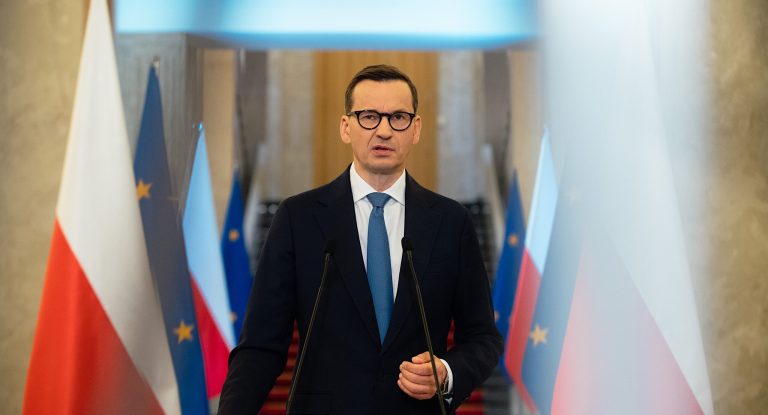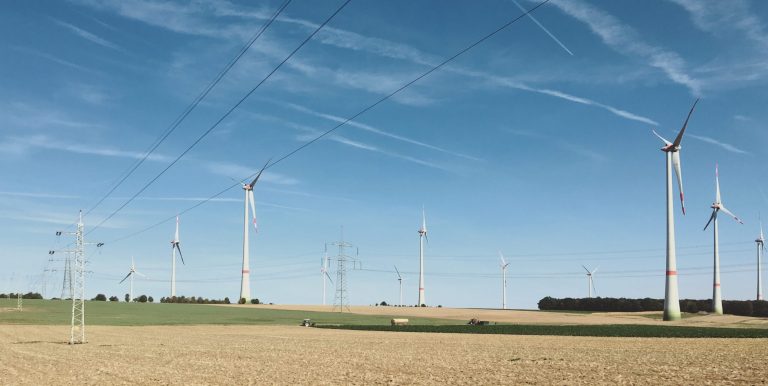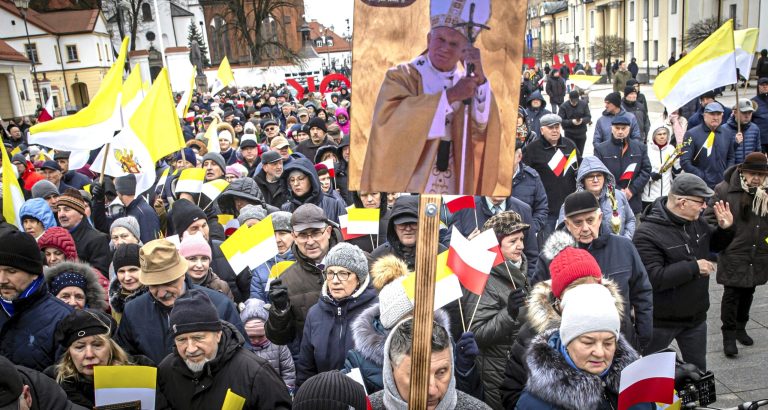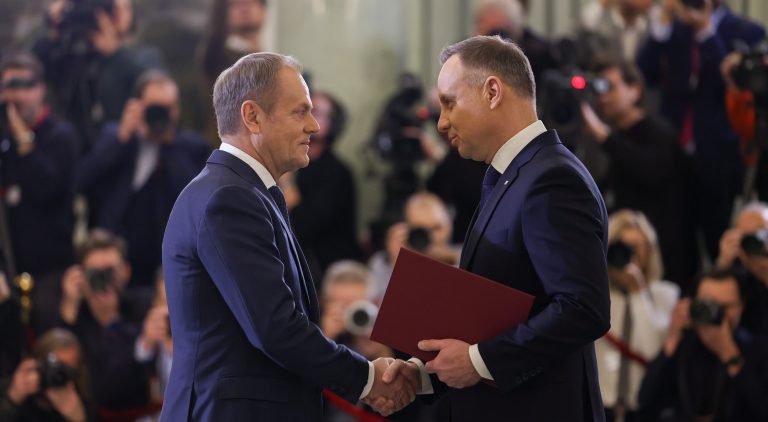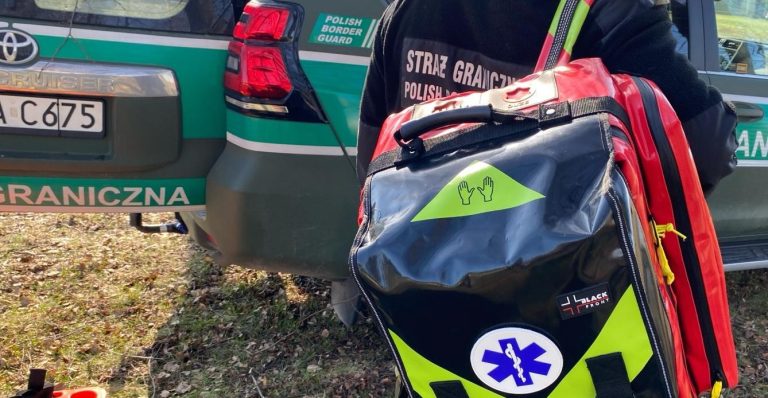Polish farmers’ protests “possibly influenced by Russian agents”, says foreign ministry after pro-Putin banner
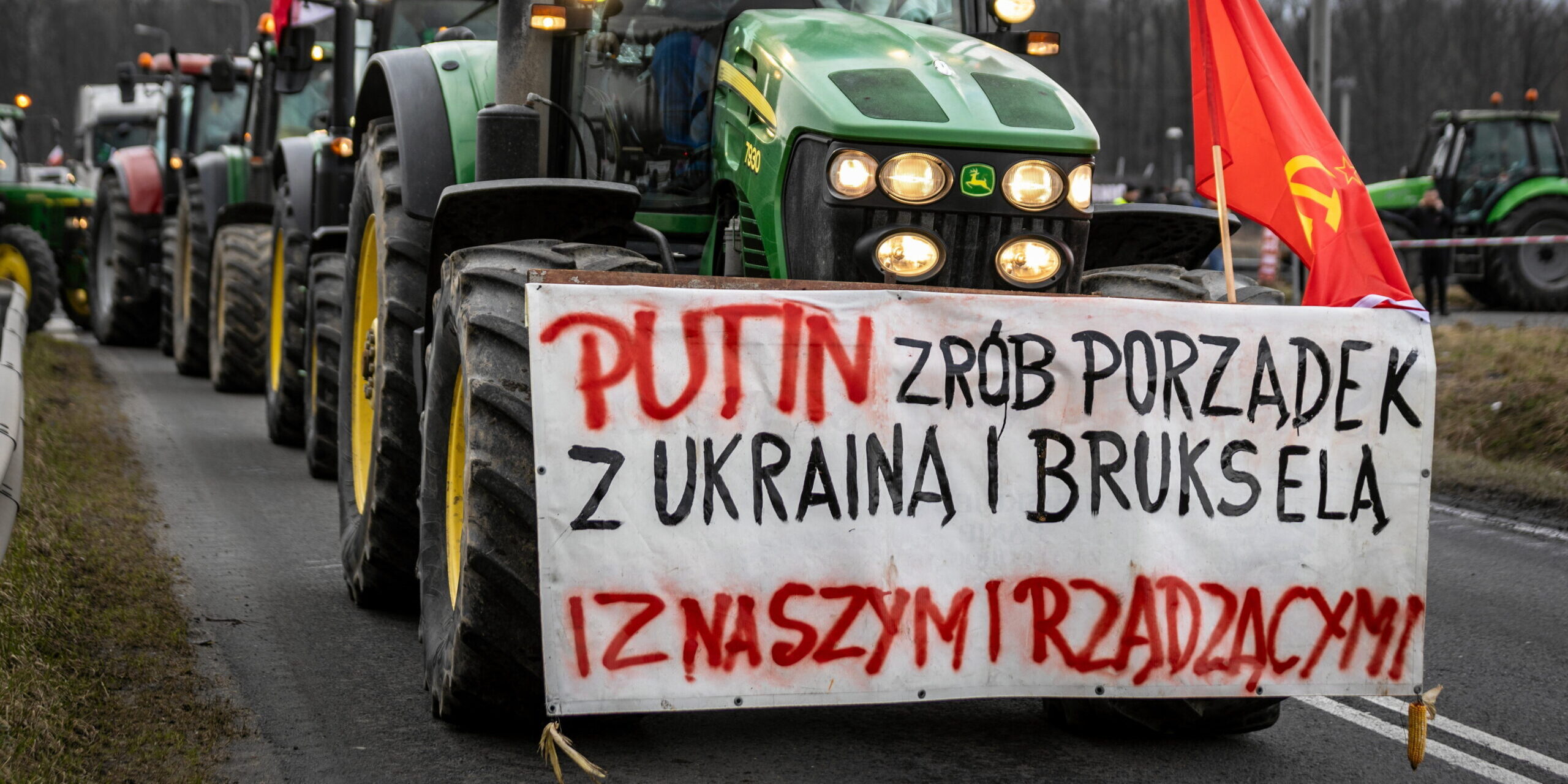
Poland’s foreign ministry has said that some elements in the ongoing protests by Polish farmers could “possibly [be] influenced by Russian agents” after banners appeared expressing anti-Ukrainian and pro-Putin sentiment.
One of the protest leaders has expressed regret over the incidents, which he suggested could be a deliberate “provocation”.
Oświadczenie Ministerstwa Spraw Zagranicznych w sprawie antyukraińskich i proputinowskich haseł na protestach rolniczych.https://t.co/lppJjZ1NC4
— Ministerstwo Spraw Zagranicznych RP 🇵🇱 (@MSZ_RP) February 21, 2024
This week, one farmer was photographed with a banner displayed on his tractor that said: “Putin, sort out Ukraine and Brussels, and our government.” The image caused public outrage.
The man, who also had a Soviet flag hanging on his vehicle, was detained by police the same day. He has been charged with public propagation of hatred based on nationality, a crime punishable in Poland by up to two years’ imprisonment.
Another anti-Ukrainian banner that has sparked public outrage read “It’s the end of our hospitality, you ungrateful sons of bitches” and displayed an image of a stick man kicking another stick man in Ukrainian colours off a map of Poland.
Informacyjnie – skandaliczny transparent, którego zdjęcie obiegło sieć, został od razu usunięty i zabezpieczony przez @PolskaPolicja . Policja i prokuratura prowadzą czynności wobec jego autora. Nie będzie zgody na takie przestępcze działania.
— Marcin Kierwiński (@MKierwinski) February 20, 2024
In a statement on Wednesday, the foreign ministry emphasised that these types of messages put Poland, a country that has been since the beginning of the Russian aggression heavily involved in helping Ukraine, “in a bad light” and also “compromise the organisers of the protests themselves”.
“In our assessment, this is an attempt to take over the agricultural protest movement by extreme and irresponsible groups, possibly influenced by Russian agents,” it added.
The ministry called on the organisers of the demonstrations to identify and remove the “few initiators” of such controversial actions from their movement “in the name of the Polish national interest and the chance to realise their demands”.
Other than calling on Putin to „tidy up Ukraine, Brussels, and the Polish government,” Polish farmer protests yesterday also sported a placard saying „it’s the end of our hospitality, you ungrateful sons of bitches,” with a Ukrainian figure getting kicked out of Poland. pic.twitter.com/HWoo7KY8qB
— Wojciech Kość (@WojciechKosc) February 21, 2024
One of the leaders of the protests and president of a farmers’ unions, Sławomir Izdebski, expressed regret over anti-Ukrainian and pro-Putin banners at protests.
“I don’t know if this was a provocation or a conscious decision by one of the farmers. Nothing like that should happen,” he told the Onet news website, referring to a farmer with the banner calling for Putin’s involvement.
“Certainly, it was not the decision of any of the trade unions,” he said. “People are so determined that they resort to various methods but that should not happen.”
The farmers launched a 30-day strike on 9 February, since when they have been blocking roads around Poland as well as border crossings with Ukraine. They say that cheap Ukrainian agricultural imports and EU climate policies threaten their livelihoods.
Ukraine’s @ZelenskyyUa has called on Polish PM @donaldtusk to meet him at their counties’ border, which is being blocked by protesting Polish farmers.
„It is [a question of] national security,” he sayshttps://t.co/bD9HCDP1KM
— Notes from Poland 🇵🇱 (@notesfrompoland) February 21, 2024
Notes from Poland is run by a small editorial team and published by an independent, non-profit foundation that is funded through donations from our readers. We cannot do what we do without your support.
Main image credit: Grzegorz Celejewski / Agencja Wyborcza.pl

Alicja Ptak is senior editor at Notes from Poland and a multimedia journalist. She previously worked for Reuters.

